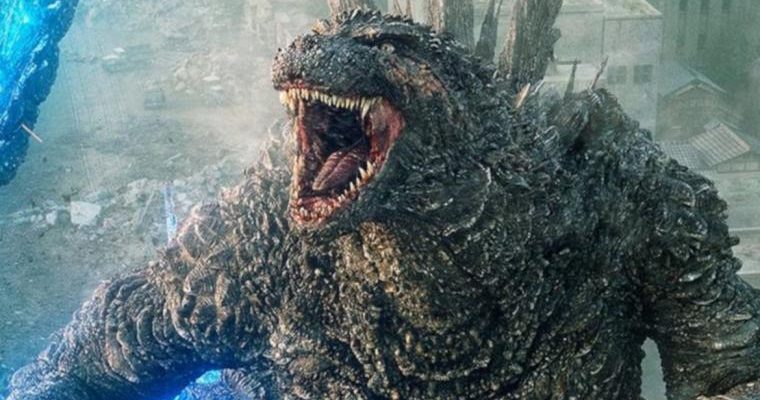Podcast: Play in new window | Download | Embed
Subscribe: Android | Blubrry | Podcast Index | RSS
Mike Schulz is given a moment to extol the virtues of the new Last Picture House before he discusses with Dave Levora and Darren Pitra the movies he has seen — as is their weekly wont.
To whit:
- May December, directed by Todd Haynes and starring Natalie Portman, Julianne Moore, Charles Melton, Cory Michael Smith, Elizabeth Yu, Gabriel Chung, Piper Curda, DW Moffett, and Lawrence Arancio. Streaming on Netflix, the film is loosely inspired by the story of Mary Kay Letourneau, who had an affair with her sixth-grade student and went to prison on two counts of felony second-degree child rape. Moore portrays the Letourneau character, while Portman plays an actor who’s contracted to portray her in a film and who treks down to Savannah, Georgia to study her in greater depth. The film starts off funny, as the characters all lack a critical self-awareness, but becomes “a blend of tones” that makes Haynes’s film more than merely a rote tragedy or a point-and-laugh comedy. Given that Haynes’s career spans four decades and includes a lot of great material (Safe, Velvet Goldmine, Far from Heaven, I’m Not There, the Velvet Underground documentary), it’s worth seeing on his participation alone.
- Godzilla Minus One, directed by Takashi Yamazaki and starring Ryunosuke Kamiki, Minami Hamabe, Yuki Yamada, Munetaka Aoki, Hidetaka Yoshioka, Sakura Ando, Kuranosuke Sasaki, and Sae Nagatani. Schulz cites the film as being in his Top Ten for the year. (Will we have Schulz’s Top Ten list sorted out before December 31?) Made in Japan, with a soundtrack that’s subtitled, not dubbed-over, Godzilla Minus One is already the highest-grossing Japanese live-action film of all time in North America, having topped $14.36 million at the domestic box office. It’s also got some real emotional and intellectual heft to it, as it’s set during the final days of World War II, and concerns the survivor’s guilt of a kamikaze who chickens out before he can undertake a suicide attack on behalf of Japan. Levora thinks the basic premise of “a kamikaze pilot with survivor’s guilt” is intriguing enough on its own. Schulz assures him (and us) that Yamazaki, who also wrote the script, builds upon that premise to make Godzilla’s catastrophic interventions in Tokyo life feel something more than merely inadvertent. There have been movies where Godzilla became kind of the hero, owing to the vagaries of a given plot. Here? Not so much. Godzilla was born of atomic fire, and he’ll hang around and stomp and spit out explosions on stuff long enough until every human underfoot understands that basic fact. (Pitra really loves Schulz’s review, wherein he says, “I’ve got words for Godzilla.” Per Schulz, his spoken words were considerably saltier than what he lays out in print.) Kamiki, who plays Kōichi Shikishima, the pilot, finds he’s lost his family during the war, and becomes attached emotionally to a co-worker, Noriko Ōishi (Hamabe), and an orphaned baby, Akiko (Nagatani). They provide a “rooting interest” for the film itself, as the four or five scenes of destruction ℅ Godzilla are stunning enough for one to hope that no innocents are around when ‘Zilla gets indigestion. Levora sounds astonished at Schulz’s claim that the film was so moving that it left him in tears. About how many monster movies do you know that can be said? Not many!
- Dream Scenario, directed by Kristoffer Borgli and starring Nicolas Cage, Jacob Jaffke, Tyler Campellone, Julianne Nicholson, Michael Cera, Tim Meadows, Dylan Gelula, and Dylan Baker. Borgli’s script has Cage portraying Paul Matthews, an unremarkable biology professor who one day starts appearing in the dreams of people around the world. Borgli plays the premise straight for the first hour, but, according to Schulz, the film appears unaware of how unappealing a character Matthews really is, and becomes a screed against Tik-Tok for the final forty minutes. Though Schulz thought Cage “decent,” he didn’t think the film was as thought-out as the Charlie Kaufmann-style comedy it apparently aspired to be.
- The Shift, directed by Brock Heasley and starring Kristoffer Polaha, Neal McDonough, Elizabeth Tabish, Rose Reid, John Billingsley, Paras Patel, Jordan Alexandra, and Sean Astin. The film is a pro-faith science-fiction retelling of the Biblical story of Job, with Polaha as Kevin Garner, a man who has everything taken away from him, yet continues to adhere to his faith despite all that. Another retelling of Job’s ordeal is all well and good, but Heasley turns it into a multiverse saga, “of all things,” when McDonough, as “The Benefactor,” reveals his malevolence when he starts knocking Garner back and forth between different dimensions — funny, but one doesn’t recall that part of the Bible. Sounds intriguing nonetheless, but Schulz can’t recall a movie baffling him as much as this outing in a long while. “It was engaging, I guess,” Schulz says, “to try to figure out what’s happening; but also really frustrating.”
- Silent Night, directed by John Woo and starring Joel Kinnaman, Scott Mescudi, Harold Torres, and Catalina Sandino Moreno — WOO HOO! Or, per Schulz, “Ugh.” “I forgot how much I don’t like [Woo]” is another measure of his disdain for the film. This seems to distress Levora and Pitra, who like all those “balletic slow-motion scenes” that Schulz is plainly sick of and done with. He did think the film’s premise novel — Kinnaman’s character suffers a physical trauma which the rest of the film apes, insofar as there’s no dialogue aside from radio chatter — but it turns out to be a mere perk, as dialogue in Woo films is, in his opinion, generally terrible. Otherwise, it’s the kind of excessively-violent outing one expects (and/or loves) from Woo, whether the setting is Hong Kong or Los Angeles or wherever-the-hell.
- Candy Cane Lane, directed by Reginald Hudlin and starring Eddie Murphy, Tracee Ellis Ross, Jillian Bell, Thaddeus J Mixon, Ken Marino, Trevante Rhodes, David Alan Grier, and Nick Offerman. Also streaming on Netflix, the film is the first Christmas film that Murphy has done — if you don’t count 1983’s Trading Places, directed by John Landis and starring Murphy, Dan Ackroyd, Jamie Leigh Curtis, Ralph Bellamy, Don Ameche, Denholm Elliott, and Paul Gleason. Schulz did not expect a Murphy family holiday film to make him laugh out loud “two dozen times” — that presumably includes all those family comedies he made starting back in the late Nineties. Kelly Younger’s script provides plenty of Christmas sentiment, and Murphy surprises with a surprising amount of restraint, before Hudlin pulls out the rug from under him and then it’s “Murphy as you’ve always loved him.”
As for previews, Schulz anticipates a nice, lean weekend:
- Eileen, directed by William Oldroyd and starring Thomasin McKenzie, Shea Whigham, Marin Ireland, Owen Teague, and Anne Hathaway.
- The Boy and the Heron, directed by Hayao Miyazaki and voiced by Soma Santoki, Masaki Suda, Ko Shibasaki, Aimyon, Yoshino Kimura, Takuya Kimura, Kaoru Kobayashi, and Shinobu Otake (Japanese dialogue) or (if you prefer the English version) Luca Padovan, Robert Pattinson, Karen Fukuhara, Gemma Chan, Christian Bale, Mark Hamill, Florence Pugh, Willem Dafoe, and Dave Bautista.

